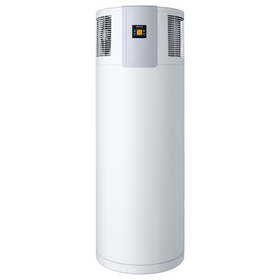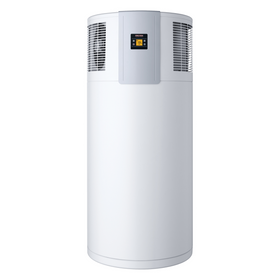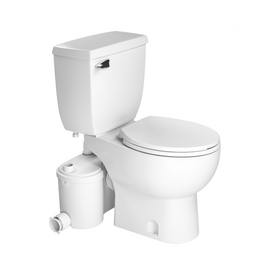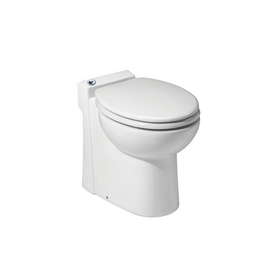
Sustainable Landscaping with a Mini Wetland
Last Updated: Mar 17, 2025Wetlands are an essential (and often overlooked) part of the natural environment. While most people know about the threats of climate change and biodiversity loss, few people have heard the alarming statistics associated with the destruction of wetlands.
One recent report finds that “50 percent of the world's wetlands have been destroyed in the last 100 years, threatening human welfare at a time of increasing water scarcity.” In the United States alone, around 110 million acres of wetlands have been lost, and more than 70,000 acres of wetlands are destroyed every year.
Below, we will look at why and how all of us can play a part in protecting local wetland ecosystems, and how domestic greywater recycling systems can help to restore our nation’s shrinking wetlands.
Ecological Benefits of Wetlands
Wetlands, also known as marshes, bogs, or swamps, are widely considered to be the link between land and water. These areas, which are periodically covered by water, have several important ecological functions and serve as critical links in the water cycle.
According to the U.S. EPA, “because of their sponge-like ability to absorb water, wetlands can slow the momentum of floodwaters or dissipate the damage from a coastal storm surge. Wetlands' highly developed root systems hold the soil in place and filter pollutants, naturally improving water quality (including water that is eventually used for drinking).”
With global warming assuring that extreme weather events will be more common and severe in years to come, the protection and expansion of wetland ecosystems can help to protect our homes from floods, stabilize shorelines and protect coastal homes, and provide necessary erosion control. Also, wetlands can assure healthy and clean sources of water within our watersheds, recharge sources of groundwater, and contribute to a more resilient home.
Wetlands are one of the most biologically productive and diverse ecosystems in the world. They contribute to overall soil fertility and can play an essential role as a sink that captures and safely stores carbon from the atmosphere. They also offer crucial habitat for a wide diversity of plants and animals, including more than 90 percent of the roughly 200 fish species in the Great Lakes region.
Table of Contents
- Homeowner Initiatives to Recreate Wetland Ecosystems: the Mini Wetland
- How to Build a Wetland
- Plants for Wetlands
- The Bottom Line

One of the most unfortunate aspects of modern-day society is that we tend to ignore the services that the natural world provides us. According to economist Herman Day, “we have come to regard the Earth as nothing more than an infinite mine for the production of our commodities, and a bottomless sink for our streams of waste. Only now that a series of global ecological crises are upon us, some economists are beginning to understand that the services provided to us by the natural world should also be a fundamental consideration in our economic decisions.”
For example, when a contracting company is considering different pieces of land to build a massive suburban neighborhood, it will focus mostly on economic considerations such as how many units can be placed on the land and potential long term profitability. Land development is one of the main drivers of the destruction of wetland ecosystems, as many construction companies will drain wetlands to facilitate housing development.
But these construction companies—and homeowners interested in purchasing a home—need to take into consideration, and indeed prioritize, ecosystem services provided by wetlands.
Restoring wetland ecosystems is as important as not destroying it in the first place. The National Park Service, for example, has removed thousands of tons of “fill” from the Channel Islands National Park in southern California and from Cuyahoga Valley National Park in northern Ohio. The removal of the fill, which previously blocked water flow and hindered the movement of aquatic life, has allowed the restoration of these ecosystems, the resurgence of aquatic life, and even uncovered streams that were previously buried underground.
Homeowner Initiatives to Recreate Wetland Ecosystems: the Mini Wetland
Attempting to restore several thousand acres of wetland that is threatened by urban development might seem like a task beyond the reach of an ordinary homeowner. So what can an individual homeowner do? We can play a part in restoring the wetland ecosystem by creating a mini wetland in our backyards. Mini wetlands are relatively easy to build and can offer a responsible way to deal with the stormwater runoff from your roof and gutters and the greywater flowing from the showers and sinks from your home. Instead of sending thousands of gallons of water into your municipal sewer system, which often becomes contaminated and pollutes local watersheds, the water falling from your roof and flowing from your home can be redirected into a biologically diverse, beautiful, and functional area of your yard.
How to Build a Wetland
Water will always tend to gather and accumulate in low lying areas. Step one to building a backyard wetland ecosystem is to dig a small depression in an area of your yard. This will readily redirect the water from your showers, sink, and roof gutters or downspouts. The size of the wetland and the depth of the depression will depend on several factors. These include the amount of annual rainfall your region receives, the type of soil in your yard, and the types of vegetation you will plant within the wetland.
As a general rule, you should at least dig a shallow depression about one foot deep. If you live in a dry area with limited rainfall, you will want to line the hollowed-out area with plastic liner; otherwise, the limited water from your greywater recycling system and roof will absorb into the soil. Make sure to puncture a few holes in the liner to allow the water to seep into the soil underneath gradually. A functioning wetland should always maintain damp soil with periodic moments of standing water. In extremely wet climates, the plastic lining might not be necessary.
Once you have your depression dug out and lined it (if necessary), you will want to fill the hole with at least two inches of pea-sized gravel. Followed with another two inches of peat moss, and two inches of coarse sand. This layered mix will offer drainage properties while also giving a growing medium for the wetland vegetation. You should then fill up the rest of the depression with chopped straw, fertile soil, or compost, being careful to leave a hollow of at least one inch between the dug-out area and the surrounding berm of soil.
Before planting your backyard wetland ecosystem, you will want to redirect the piping from your gutters/downspouts and your greywater recycling system (if you have one) towards the constructed wetland. To make sure that water is spread evenly throughout the wetland, drill several holes in the piping or tubing to encourage even infiltration of water.
Shop All Special Offers
Shop Special Offers on vetted Home Improvement products at low prices while supplies last.

Stiebel Eltron Accelera 300 E Heat Pump Water Heater
Stiebel Eltron
In Stock

Stiebel Eltron Accelera 220 E Heat Pump Water Heater
Stiebel Eltron
In Stock

Quickscrews Cabinet Install Screws
Quickscrews
In Stock

Saniflo Sanibest Pro Combo Macerator System
Saniflo
In Stock

Blanco PRECIS 30 Undermount Single Bowl SILGRANIT Kitchen Sink
Blanco
In Stock
8 Colors

Blanco PRECIS Super Single Undermount SILGRANIT Kitchen Sink
Blanco
In Stock
8 Colors

Hauslane Chef 36" UC-PS18 860 CFM Ducted Undercabinet Range Hood
Hauslane
In Stock
2 Colors

Saniflo 023 Sanicompact Macerating Toilet
Saniflo
In Stock

Blanco Torre Soap Dispenser
Blanco
In Stock
8 Colors

Quickscrews Pan Head Pocket Hole Screws
Quickscrews
In Stock

Plants for Wetlands
There are dozens of species of plants that are naturally adapted to growth in permanently wet soils. Cattails and other reeds are some of the best water purifying plants and will get rid of the soap and other residues from your household greywater. They will also attract frogs and other amphibians that hibernate in mud through the winter.
Royal, ostrich and cinnamon ferns are also great choices. Growing up to six feet tall, these can provide a nesting spot for several species of birds. Some types of trees, such as elderberries and swamp maple, can be planted on the surrounding edges of the wetland, offering fruit and ornamental touch.
The Bottom Line
Wetland ecosystems, because of the steady-state of humidity in the soil, encourage rapid vegetative growth. Within a year or two, the water that you would have otherwise literally sent down the drain will be contributing to the development of a diverse ecosystem that will increase wildlife habitat, purify water, recharge groundwater aquifers, and will create a beautiful addition to your yard. Just imagine if every backyard had a mini wetland!
Tobias Roberts
Tobias runs an agroecology farm and a natural building collective in the mountains of El Salvador. He specializes in earthen construction methods and uses permaculture design methods to integrate structures into the sustainability of the landscape.
